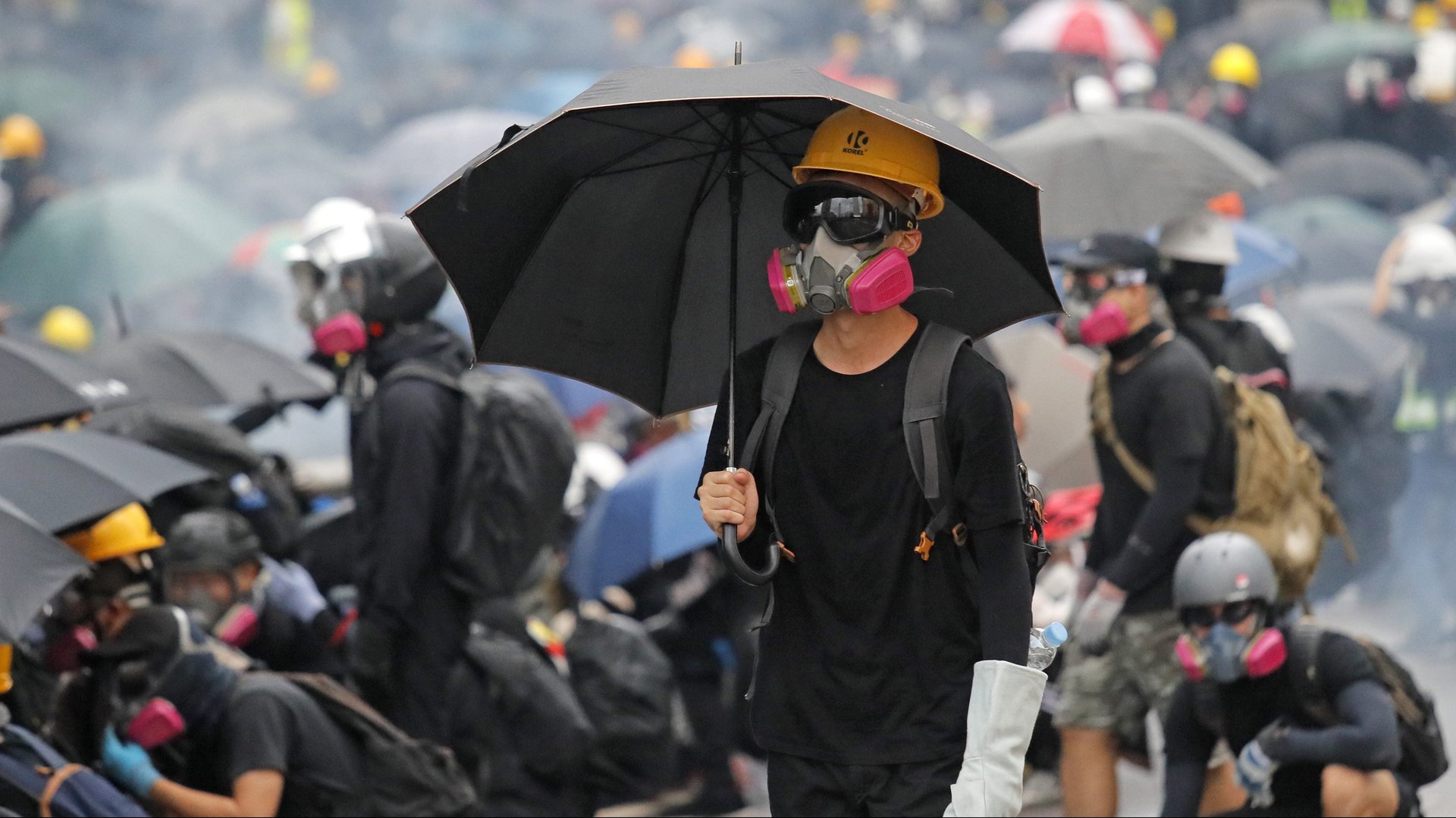Hong Kong protestors are using pop culture memes to stay visible to the world
Back in 2014, when Hong Kong’s streets turned into a sea of bobbing yellow parasols with the student-led Umbrella Movement, protesters belted out the hit Broadway musical Les Misérables anthem “Do You Hear the People Sing?” as they called for free and fair elections.


Back in 2014, when Hong Kong’s streets turned into a sea of bobbing yellow parasols with the student-led Umbrella Movement, protesters belted out the hit Broadway musical Les Misérables anthem “Do You Hear the People Sing?” as they called for free and fair elections.
In mid-June of this year, the song came back.
Hong Kongers are once again embroiled in a months-long confrontation with their government. First sparked when civilians rejected a proposed extradition bill, the unrest has since gathered momentum and accumulated more demands for an independent democratic government.
Historically, pop culture has figured prominently in Hong Kong’s protest culture. But unlike in 2014, when songs, slogans, and memes mostly referenced regional pop culture, this time the protesters are drawing on more global messages.
With clashes between civilians and police escalating, activists Joshua Wong and Alex Chow referenced a catch phrase from The Hunger Games movies in a recent op-ed piece they wrote for the New York Times: “If we burn, you burn with us.”
Those words took on new urgency this weekend as literal fires blazed during clashes at police headquarters, and as protesters set fires to block access to key transportation infrastructure.
On Friday, the government rounded up a number of the city’s more well-known activists, including Wong—regardless of the fact that activists assert there is no centralized leadership of the protests.
We’ve read about protesters helping to assemble a public wall of protest memes. In the past, Wong and his peers have employed American pop culture trends to contextualize their own struggles, such as when a government bill moved to make China’s anthem—and an adequate show of respect for the anthem—mandatory in Hong Kong public institutions like schools. Wong and his colleague Jeffrey Ngo pointed out how preposterous it would have been to arrest or jail NFL quarterback Colin Kaepernick when he took a knee during the US national anthem.
Martial arts and action mogul Bruce Lee has also provided fodder—and a motto—to protesting Hong Kongers, who have taken up the late movie star’s famous philosophy to “be water.” Hong Kongers adamantly position their demonstrations as a leaderless movement, and the adage has been fitting in the oft impromptu protests as they gather in different locations around the city, involve people across social and professional sectors, and have rather nimbly adapted and responded to authorities and crackdowns.
Engaging with pop culture has also helped bring major brands (and their global audiences) into the fray, as when Chinese-American actress Liu Yifei tweeted out her support for Hong Kong police. Yifei, who plays Mulan in the upcoming live action remake of Disney’s 1998 movie Mulan, received a storm of social media backlash when fans responded with anti-Disney rants and a viral #BoycottMulan hashtag.
Catchphrases, hashtags, and theme songs are not only being used as a uniting force to foment protest among the masses, but have also helped the protests themselves remain relevant to media outlets and audiences around the world. Pop culture and entertainment is a language that transcends geography, and is highly relevant to global markets.
This may also help remedy the common phenomenon of protest fatigue, where all too often we see protests, civil unrest, and all manner of humanitarian tragedies drop off news headlines once they go on for a sustained period of time. It’s sad but true that while deadly civilian protests rage on in Sudan, and Brazil’s Amazon forests continue to burn, the media has largely run out of new things to say about them.
In Mockingjay, the final installment of the Hunger Games series, from which the “If we burn, you burn with us” decree comes, the tyranny of the capital is vanquished—eventually, over the course of many battles, and at tremendous cost. Let’s hope Hong Kong doesn’t have to follow suit. And let’s hope that coverage does not go dark if the government makes good on its threats to shut down the internet, or to enforce an Emergency Regulations Ordinance. But politics being as they are, Hong Kong’s quest for democratic state representation is far from over.